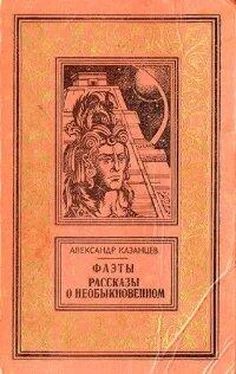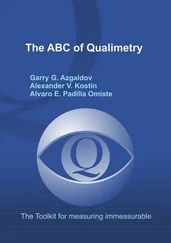Alexander Kazantsev - The Destruction of Faena
Здесь есть возможность читать онлайн «Alexander Kazantsev - The Destruction of Faena» весь текст электронной книги совершенно бесплатно (целиком полную версию без сокращений). В некоторых случаях можно слушать аудио, скачать через торрент в формате fb2 и присутствует краткое содержание. Город: Moscow, Год выпуска: 1989, ISBN: 1989, Издательство: Raduga, Жанр: Фантастика и фэнтези, на английском языке. Описание произведения, (предисловие) а так же отзывы посетителей доступны на портале библиотеки ЛибКат.
- Название:The Destruction of Faena
- Автор:
- Издательство:Raduga
- Жанр:
- Год:1989
- Город:Moscow
- ISBN:5050024676
- Рейтинг книги:3 / 5. Голосов: 1
-
Избранное:Добавить в избранное
- Отзывы:
-
Ваша оценка:
- 60
- 1
- 2
- 3
- 4
- 5
The Destruction of Faena: краткое содержание, описание и аннотация
Предлагаем к чтению аннотацию, описание, краткое содержание или предисловие (зависит от того, что написал сам автор книги «The Destruction of Faena»). Если вы не нашли необходимую информацию о книге — напишите в комментариях, мы постараемся отыскать её.
The Destruction of Faena — читать онлайн бесплатно полную книгу (весь текст) целиком
Ниже представлен текст книги, разбитый по страницам. Система сохранения места последней прочитанной страницы, позволяет с удобством читать онлайн бесплатно книгу «The Destruction of Faena», без необходимости каждый раз заново искать на чём Вы остановились. Поставьте закладку, и сможете в любой момент перейти на страницу, на которой закончили чтение.
Интервал:
Закладка:
“But what for?” asked Ena, amazed. “Surely you could find a cave in the underground city?”
“The experiments we are going to do are dangerous. No one believes me, but I suspect that matter has a tendency to disintegrate into even smaller particles than the ‘indivisible’ ones of which matter consists.”
“Matter has a tendency to disintegrate?” echoed Ena in horror.
“Yes, that’s the thought I’ve reached. Of course, it’s only a scientific hunch, nothing more. You and I will take a vow here to enrich the Marians with the energy of disintegration.”
“No,” said Ena Fae firmly. “You’re mad to have such ambitions.”
“But why? Are you really going to become one of those who misunderstand me?”
“Listen to what, as a Marian girl, I have to say to you. We who bear within us new generations of Marians have had passed down to us the injunction of the Great Elder at whose monument we now stand.”
“The Great Elder bequeathed to us the power of knowledge. What else?”
“Follow me,” commanded Ena.
Tome obediently went after her.
Ena took him by a roundabout path. Descending steeply, it led them into a stalagmite cave which was evidently directly underneath the Cave of Youth.
Ena pointed at the roof.
“The Elder above is pointing downwards, and if you follow the line of direction, it runs through a stalactite to indicate some writings.”
Sure enough, under the stalactite there was a stone slab fashioned from the base of a removed stalagmite. The deposits on it had been carefully cleaned off.
“Read it!” commanded Ena.
Some passages in the inscription seemed particularly strange to Tome Polar.
“Never must the Marians, descendants of the Faetians, touch those fields of knowledge which led to the destruction of the beautiful Faena. Never must they strive to learn of what matter consists, never must they strive to achieve movement without propulsion. These prohibitions are for the protection of future generations who must be saved from the suffering that comes from such knowledge.”
Tome turned to Ena.
“What crude superstition! What did this Elder do to be called great? What do the structure of matter and movement without propulsion have in common? Apart from that, the deciding question should be, ‘Who is in possession of the knowledge?’ ”
“I don’t know enough to argue with you,” said Ena, “but what rational people know today can become the property of very different ones tomorrow. That is why the Prohibitions of the Great Elder have been imposed on the Marian women. That duty of ours is higher than anything else. No one must know what is forbidden.”
“What d’you mean by ‘higher than anything else’?” said Tome, much put out. “Higher than love?”
Ena lowered her eyes.
“Yes, my Tome, even higher than love.”
“I don’t recognise you!”
Tome Polar could not bear objections, especially if they weren’t upheld by the logic of reason. He despised and rejected everything that seemed unfounded. This had been encouraged in him since early childhood by his parents, whom he remembered vaguely (he had been the youngest of nine children), and it had subsequently developed thanks to his own outstanding abilities, enabling him to laugh off any lack of understanding. But to meet with no response from the girl of his choice was too hard for Tome Polar. A spoiled darling of fate, he refused to believe his ears. His mood darkened and he said haughtily:
“I didn’t expect your love to be so feeble that it would pale before the first flash of superstition.”
“You must make a vow,” demanded Ena in a ringing voice that echoed under the roof of the cave, “you must make a vow never again to try and learn the secret of matter which is supposed to be liable to disintegration.”
“How can I make such a vow if that is the one thing I yearn for?”
“I thought you were yearning for me…”
Tome Polar was taken aback. He had been ready for anything in the marriage ceremony with Ena Fae except this unreasonable stubbornness. He did not know that his bride was speaking for generations of Faetesses who had handed down their concern for posterity to her. Perhaps the terrible disaster on Faena had awakened in the exiles on Mars a new feature which should guarantee life for the Marians. This had found expression in the Great Elder’s Prohibitions, which had been passed on to all without exception.
The tragedy of Faena must not happen again.
Ena realised that Tome Polar would only respond to conviction. She sat beside him on a rock near the stalactite with the inscriptions and told him in a sad voice everything she had learned from her mother about the destruction of Faena.
The exasperated Tome Polar refused to listen. To him, the Marian girl’s story was an ignorant fairy tale full of senseless superstitions. What use was the mere assertion that the Faetians who escaped the destruction of their planet had flown from it in a kind of projectile that, it was claimed, moved on its own without pushing itself off from anything? Incidentally, the possible disintegration of matter was quite rightly not in any way connected with such movement.
Convinced that a Marian girl’s fictitious duty, to save the population of Mar from future disasters, was being put higher than her own love for him. Tome Polar decided that she did not truly love him.
Hot-tempered, vain, and, moreover, not one to acknowledge half-measures, he broke it off with the girl he loved and walked out of the stalactite cave on his own.
Behaving like that in the heat of the moment, however, proved much easier than living without Ena afterwards.
Tome Polar began pining away. The population of the underground City of Life (it was so named after the River of Life in the caves) was not so great that Tome and Ena could avoid one another. On the contrary, they kept meeting one another accidentally all the time, and Ena seemed even more beautiful than ever to Tome Polar. He started trying to make a date with her, but Ena was cold and distant. At least she managed to make that impression on him.
He was suffering. “She’s simply oppressed by ignorant superstitions,” he thought, trying to justify her to himself.
He soon became convinced that he couldn’t live without Ena. By this time, his dreams of setting up a laboratory for himself in a distant cave had also faded away. He hadn’t the strength to equip it by himself, and the Marians he approached for help refused, mentioning the hostility of their wives. These, evidently, were prisoners of the same superstitions as the young Ena.
Tome Polar was in despair. The ancient traditions were tightening round him in a ring, as if squeezing the breathing tubes of a space-suit.
Civilisation on Mar had developed in an unusual way. Receiving the heritage of a more ancient culture, the Marians on the whole devoted all their energies not to the struggle with the representatives of the animal world, since the planet’s atmosphere was unfavourable for the development of certain species, but to the struggle with the harsh natural environment. It was only possible to live in shelters supplied with artificial air and go out to the surface in space-suits. Plants could be grown successfully at the oases, but the Marians had to supply artificial irrigation and tend them while wearing space-suits. The struggle of rational beings with one another remained only in the memories of long-past generations that had become embodied in the duty of the Marian women and girls.
Perhaps like no other Marian of her kind, Ena felt the full burden of that duty. She suffered more than Tome Polar, because she could renounce her duty in the name of love. She didn’t do so, however, never doubting for a moment that she was protecting the whole population of Mar from destruction.
Читать дальшеИнтервал:
Закладка:
Похожие книги на «The Destruction of Faena»
Представляем Вашему вниманию похожие книги на «The Destruction of Faena» списком для выбора. Мы отобрали схожую по названию и смыслу литературу в надежде предоставить читателям больше вариантов отыскать новые, интересные, ещё непрочитанные произведения.
Обсуждение, отзывы о книге «The Destruction of Faena» и просто собственные мнения читателей. Оставьте ваши комментарии, напишите, что Вы думаете о произведении, его смысле или главных героях. Укажите что конкретно понравилось, а что нет, и почему Вы так считаете.












